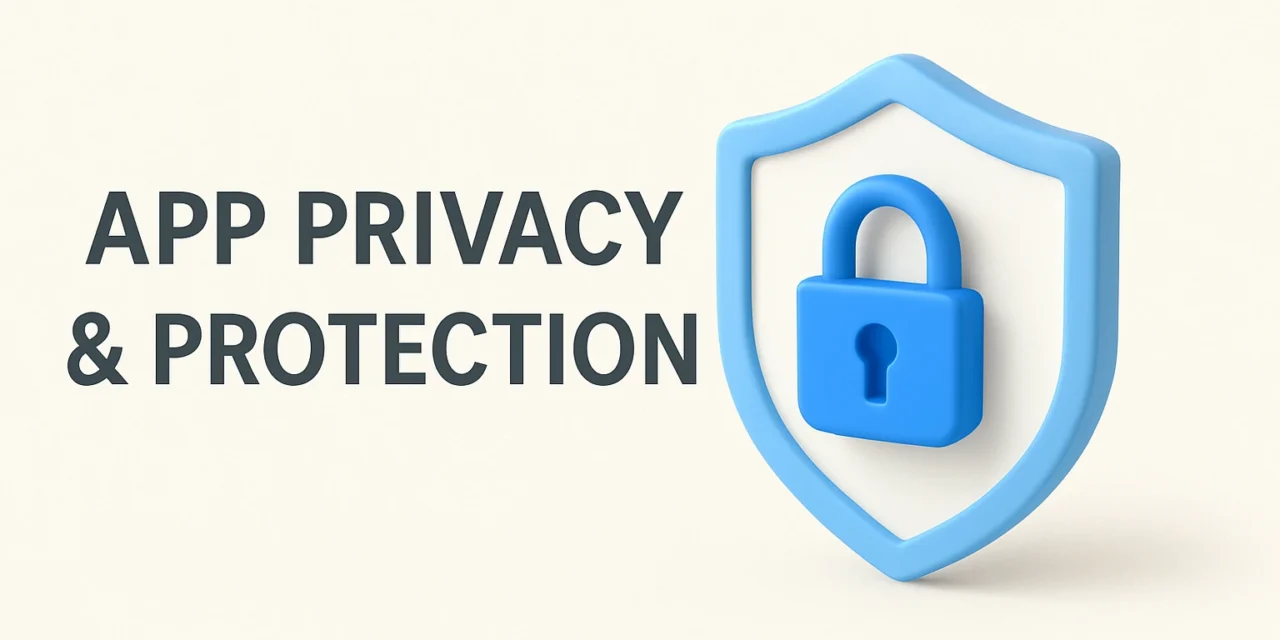Introduction
In today’s mobile-first world, we use apps for nearly everything—shopping, banking, communication, and even health tracking. But with convenience comes risk. App privacy and protection are more important than ever to ensure your personal information is safe from cyber threats and data misuse. This guide will walk you through why app privacy matters, common risks, and simple ways to stay protected.
Explore more on trending apps at Apps Thunder
Why App Privacy Matters
Your personal data is valuable. Apps often request access to sensitive information like contacts, location, photos, and payment details. Without proper privacy measures, this information can be exposed or misused.
Key Privacy Risks:
-
Data Leaks: Poorly secured apps can unintentionally leak user data.
-
Unauthorized Access: Some apps request permissions they don’t actually need.
-
Tracking: Many apps track your location and online behavior without clear consent.
Best Practices for App Privacy & Protection
1. Download Apps from Trusted Sources
Only download apps from official stores like Google Play Store or Apple App Store. Third-party app stores may host unsafe applications.
2. Check App Permissions
Review app permissions carefully. If a photo editor asks for microphone access, that’s a red flag. Only grant necessary permissions.
Learn about controlling app permissions.
3. Regularly Update Apps
App developers release updates to fix bugs and security flaws. Keeping your apps up to date reduces your vulnerability to attacks.
See why app updates matter.
4. Use Strong Authentication
Enable two-factor authentication (2FA) when possible. This adds an extra layer of security, especially for apps with sensitive information.
5. Read Privacy Policies
Yes, they’re boring—but privacy policies tell you what data the app collects and how it’s used. Always scan for key points before installing.
Check tips on reading privacy policies effectively.
The Role of Mobile OS Updates
Both Android and iOS regularly introduce new privacy protections. Android 16, for example, has advanced protection features that give you more control over app permissions and data access. Always keep your phone’s operating system updated to benefit from these improvements.
App Privacy Tools You Should Use
-
App Permission Managers: Built into Android and iOS to help you control app access.
-
VPN Services: Hide your internet activity from trackers.
-
App Lockers: Add an extra password to individual apps.
Conclusion
App privacy and protection are essential for everyone. By following these practical steps, you can safely enjoy your favorite apps without compromising your personal data. Stay informed, stay updated, and always think before granting permissions.
FAQs on App Privacy & Protection
1. Why should I care about app privacy?
Your personal data is valuable. Without proper app privacy, your sensitive information like passwords, contacts, and financial details could be exposed to hackers or misused by third parties.
2. How can I check if an app is safe?
Look for apps with good reviews, high download counts, and those from trusted developers. Always check the permissions the app is requesting before installing.
3. What permissions should I avoid giving apps?
Be cautious about granting access to your location, camera, microphone, and contacts unless absolutely necessary for the app to function.
4. Are app updates really that important for security?
Yes. App updates often include patches for security vulnerabilities. Ignoring updates can leave your data exposed to known threats.
5. What’s the safest way to install apps?
Always install apps from the Google Play Store or Apple App Store. Avoid third-party sources that might offer tampered or unsafe apps.





